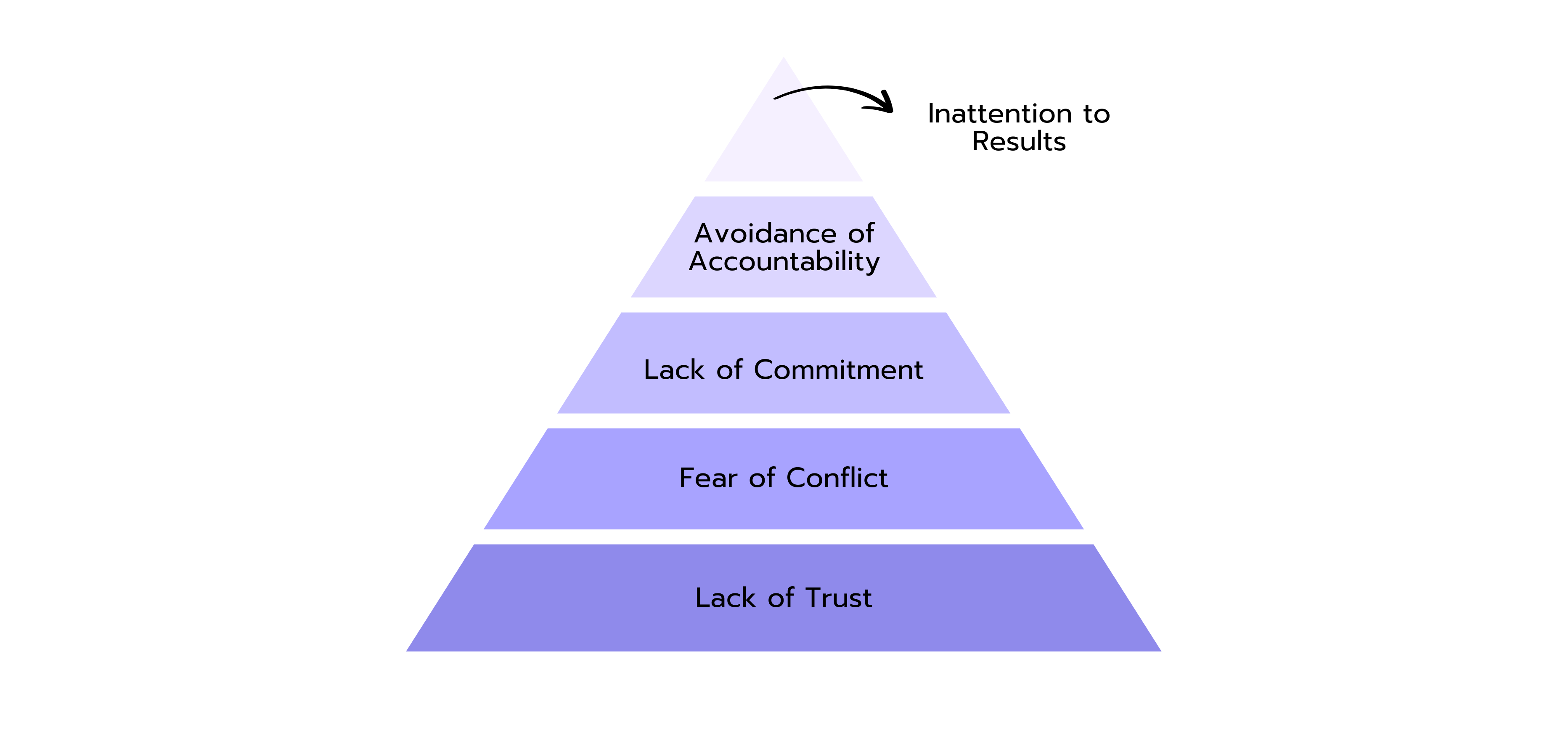The model of the "Five Dysfunctions of a Team" comes from the business novel of the same name by Patrick Lencioni. The author, an experienced consultant in team development, tells the story of a tech company that was once successful – until the team began to fall apart. Lencioni shows how certain patterns can hinder a team – leading to a real crisis.
Especially in study projects, group work, or later in your career (especially in consulting), it’s important to recognize these dysfunctions – and actively address them. Teamwork is more than task division. It thrives on trust, clarity, and real collaboration.
Here are the five main dysfunctions – and how to avoid them.
The Five Dysfunctions of a Team

- Lack of Trust: Without trust, little happens in a team. If you hide weaknesses or uncertainties instead of addressing them openly, no real collaboration occurs. Teams that allow vulnerability perform better, learn faster, and use everyone’s strengths. Trust is the foundation – and without it, all problems follow.
- Fear of Conflict: It might sound strange, but good teams argue constructively. Avoiding conflict often leaves things unsaid, causing tension and frustration. Open and respectful discussions lead to the best ideas.
- Lack of Commitment: When decisions aren’t made clearly or collectively, commitment suffers. Why should you commit to a goal you didn’t agree on? Open discussions and clear commitments ensure everyone is truly on board.
- Avoidance of Accountability: Accountability works only when clearly assigned. When no one knows who’s responsible for what, the “someone else will do it” problem arises. Set clear responsibilities and hold each other accountable.
- Inattention to Results: What matters most is what you achieve together. If personal egos or career goals take over, focus is lost. This is crucial in consulting teams, where results are measurable. Keeping the bigger picture in mind makes all the difference.
Actively Addressing the Dysfunctions
- Build Trust: Openness, honesty, and vulnerability lay the foundation for trust.
- Promote Constructive Conflict: Respect different viewpoints and encourage open communication to turn tensions into productive debates.
- Make Clear Decisions and Commit to Them: Transparent decisions and commitment ensure accountability.
- Take Responsibility and Demand Accountability: Ensure everyone takes responsibility and holds each other accountable.
- Prioritize Team Goals: Put the team’s goals first and make sure personal interests don’t hinder collaboration.
What Does This Mean for You as a (Future) Consultant?
In consulting, success rarely happens alone. Projects are complex, require teamwork, and are often under time pressure. Without trust, suppressed conflicts, or unclear accountability, projects can fail.
Lencioni’s model helps you spot these patterns early – and take action. Openness, accountability, respect, and shared goals are not just “nice to haves” but true success factors. Especially in consulting, where you work with many stakeholders.

